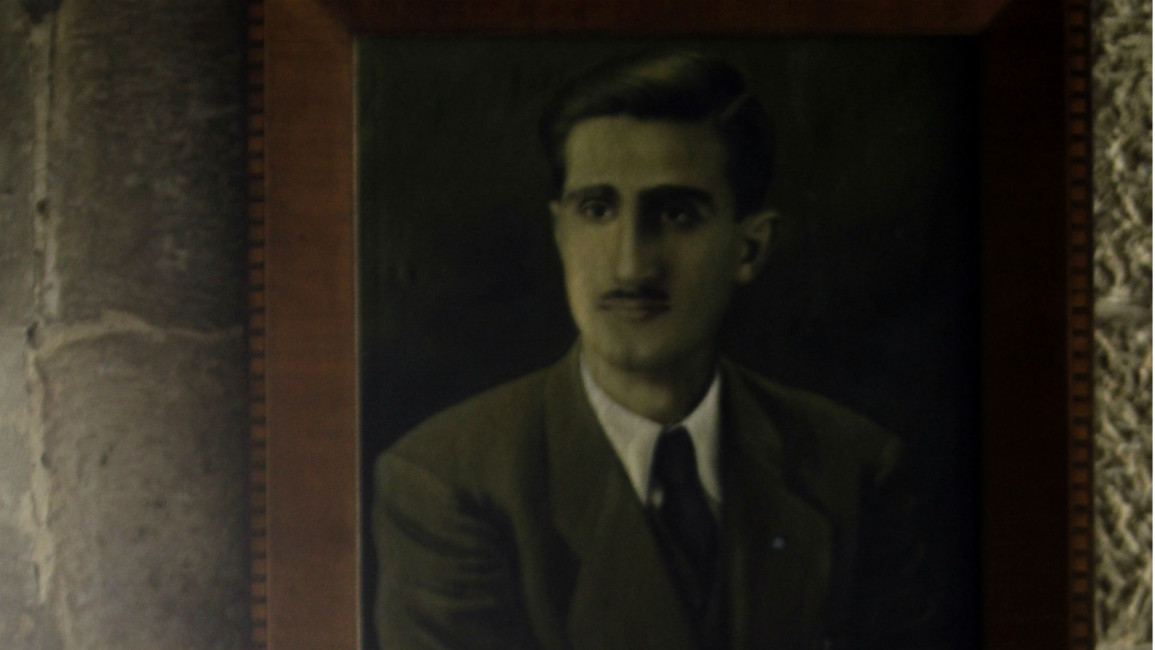
Jumblatt's legacy still echoes in today's Lebanon
Thirty-eight years ago, Kamal Jumblatt died in what was widely viewed as the first political assassination at the hands of the Syrian regime in Lebanon.
In 1970, Hafez al-Assad had taken control of the regime in Syria, and, six years later, his army was deployed to Lebanon. Assad dominated the country for nearly 30 years in the name of "national fraternity".
The thinking fighter
Jumblatt was born into from an influential feudal family in the Mount Lebanon area. His clan were pillars of the Druze community, and had been for decades.
He rose to become a political leader, an intellectual, and a man of near-encyclopaedic knowledge. In 1949, he, along with a group of leading men of politics and culture from various Lebanese sects, founded the Progressive Socialist Party (PSP).
His slogan was "humane socialism", through which he wanted to set his experience apart from that of the Soviet Union and the Communist regimes in Eastern Europe.
Jumblatt was hostile to the military and authoritarian regimes that came to dominate a number of Arab countries from the early 1950s onwards - in Egypt, Syria, Iraq, Algeria, Libya and Sudan.
Jumblatt was elected to the Lebanese parliament when he was just 26, championing democracy, freedom, and equal citizenship. He did not conceal his admiration for Egyptian president Gamal Abdel Nasser.
When unity was declared between Egypt and Syria in 1958, he went to Damascus with a Lebanese delegation to congratulate Nasser. He asked the Egyptian president to preserve Lebanon's independence, adamant that it would not be jailed in a "greater Arab prison".
| Jumblatt's slogan was 'humane socialism', through which he wanted to set his experience apart from that of the Soviet Union. |
Later, Hafez al-Assad would turn Lebanon into a "small prison". Assad subdued Lebanon's politicians, savagely undermined its institutions, and plundered its economy.
Assad's representative became the de facto governor of the country, putting together governments and toppling others, and holding elections in which he allowed some to win and caused others to lose.
For more than two decades, Assad pursued a policy of divide and conquer in Lebanon. At times he would side with the Palestine Liberation Organisation (PLO) and leftist/Arab nationalist parties in Lebanon.
At other times he would side with right wing against the left. Assad incited Muslims against Christians, then Christians against Muslims.
Dividing a nation
Yasser Arafat and Kamal Jumblatt and their allies, Assad believed, were in "the Muslim faction", and by his logic, Assad required them to fully submit to his orders and policies. This is what Jumblatt had discovered from the outset.
But Jumblatt had a project for political reform. He dreamt of change in Lebanon on a non-sectarian basis. He was the first to rebel against Assad's will and domination of Lebanon, forcing him to seek to defeat his opponents militarily.
Although he believed in nonviolence and subscribed to nonviolent mystical philosophy, Jumblatt became involved in the war.
In May 1976, Jumblatt was dealt his first painful blow, with the assassination of his sister in her home. But he did not back down. In autumn of that year, he had a turbulent meeting with Assad, in which Jumblatt refused to reverse his positions.
At the beginning of 1977, Jumblatt travelled to Paris, looking for European and international support against the intransigence of the Syrian regime. In Paris, he met with then-French president Valery Giscard d'Estaing, who promised to convene an international conference to assist Lebanon.
Jumblatt then travelled to Cairo, where he met Egyptian President Anwar Sadat, who was by then estranged from Assad. Sadat advised Jumblatt to stay in Cairo, saying he had information about an assassination plot against the Lebanese leader.
| Although he subscribed to nonviolent mystical philosophy, Jumblatt became involved in the war. |
However, Jumblatt returned to Lebanon to face his fate.
Assad was not impressed by this "arrogant" challenge to his authority and influence in Lebanon and beyond, and decided, as many believe, to eliminate him. Jumblatt did not take any precautions in his movements.
Staring death in the eyes
On March 16, 1977, on his way into Beirut, a car intercepted him a few metres from a Syrian army checkpoint. Two men approached and shot and killed him.
The assassination caused immediate strife between Christians and Druze. Two hundred Christians were killed in the Chouf district by Druze seeking revenge for their leader.
Jumblatt's assassination killed any hope of change, and turned the conflict in Lebanon into a sectarian war that continues to this day, within and beyond the country's institutions.
The Baathist regime in Damascus tightened its control in Lebanon afterwards, and dominated almost every aspect of life in the country for nearly three decades, as both sides in the conflict appealed to Assad to resolve their differences.
Jumblatt was not a politician in the traditional sense, despite being heir to a longstanding political and feudal dynasty. The basis of man's actions was one's conscience, he believed, and not one's party or affiliation.
And for him, politics, as he once said, "must be the most noble affair".
Nor was he just a politician, but also a writer and a philosopher deeply concerned with the human condition, with more than 30 books to his name and even a collection of published poems.
Today, Lebanon is still suffering from the same problems Jumblat had understood and confronted. From the absence of the state, to the militia domination of public life - not to mention the assassinations of leaders, intellectuals, and free voices.
This article is an edited translation from our Arabic edition.
Opinions expressed in this article remain those of the author and do not necessarily reflect those of al-Araby al-Jadeed, its editorial board or staff.




